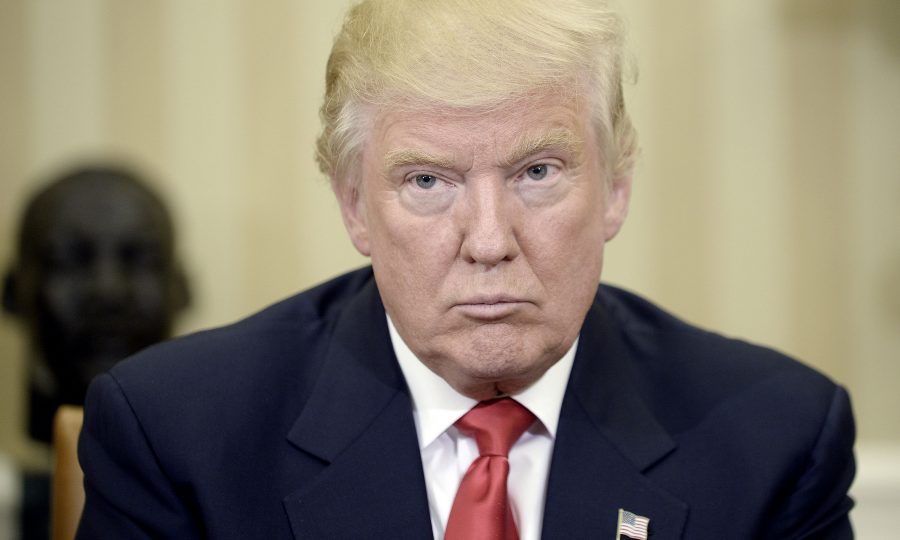Trump admits sharing information with Russia about terror threat
Then President-elect Donald Trump looks on in the Oval Office of the White House on Thursday, Nov. 10, 2016 during a meeting with U.S. President Barack Obama in their first public step toward a transition of power in Washington, D.C. (Olivier Douliery/Abaca Press/TNS)
May 16, 2017
In tweets Tuesday morning, President Donald Trump said he had shared “facts pertaining to terrorism and airline flight safety” with Russian diplomats in an Oval Office meeting last week, confirming a key part of a news report his aides had denied the night before.
Trump said he had shared the information in the hopes of getting Russia to “greatly step up their fights against ISIS and terrorism.”
Trump did not address the allegation at the heart of the story published Monday evening by the Washington Post — that the information he told Russian Foreign Minister Sergey Lavrov and Ambassador Sergei Kislyak included details provided to the U.S. by a foreign intelligence service that were highly sensitive and that the U.S. had promised not to share with other countries.
Advertisement
But his reference in the tweet to his having an “absolute right” to share the information implied that he knows that some of what he said involved classified material. Under federal law, the president has a legal right to declassify information.
Monday night, White House National Security Adviser H.R. McMaster had said the Post story was false “as reported,” a carefully worded denial that went on to dispute something the story had not alleged. Trump had not shared any information that divulged “sources or methods” of intelligence collection, McMaster said.
The story said that the details Trump did share, which included the name of the city in Syria where Islamic State operatives were preparing an airline bomb plot, could have allowed the Russians to deduce which foreign intelligence service had provided the information. That could jeopardize cooperation with that country, U.S. officials feared, according to the Post.
The plot appears to have involved using laptop computers to conceal bombs, according to U.S. officials.
The New York Times confirmed a similar account Monday night.
Trump’s tweets marked the second time in a week that he has made statements that forced his staff to change their story about a major news development.
Last week, in an interview with NBC, he said he had decided to fire FBI Director James Comey regardless of any recommendation from Justice Department officials. White House spokespeople had spent the previous 36 hours insisting that he had acted on the recommendation of Deputy Attorney General Rod J. Rosenstein.
Advertisement*
Trump also said in the interview that he had been thinking about the “Russia thing” when he fired Comey, a reference to the FBI’s investigation into Russia’s efforts to influence the outcome of the 2016 election. His aides had also denied that.
As he has before, Trump suggested that the real problem wasn’t his conduct, but the fact that U.S. officials had told the press about it.
___
(c)2017 Tribune Co.
Visit Tribune Co. at www.latimes.com
Distributed by Tribune Content Agency, LLC.
Advertisement








